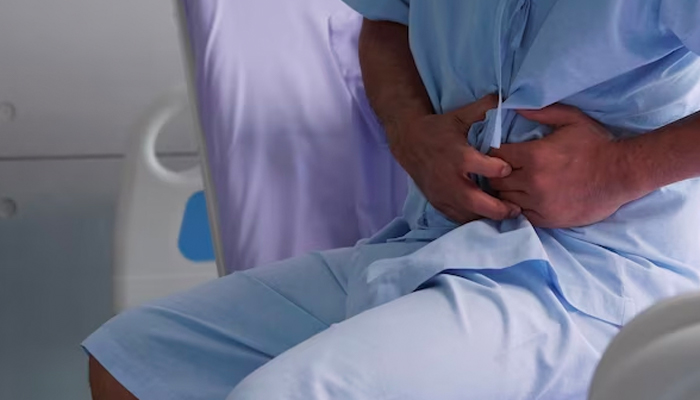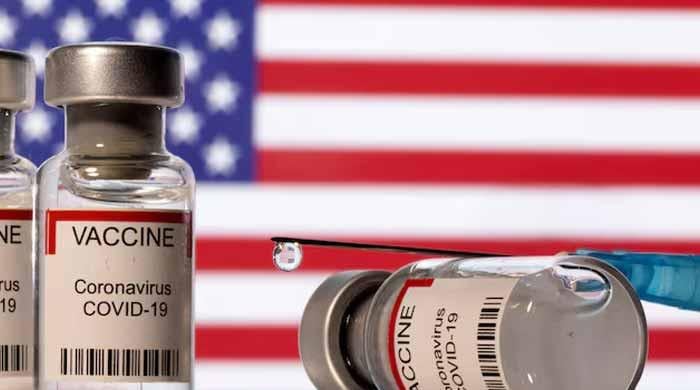Experts say hundreds of gastroenterologists needed to treat over 60% GI patients
"Around 60-70% burden on hospital emergencies comprised of patients needing treatment for gastrointestinal issues," JPMC head says
June 04, 2023

- Need reiterated during an annual conference by Pak GI and Liver Disease Society.
- JPMC chief says hospital emergencies treat 60-70% of patients with gastrointestinal issues.
- Practical training sessions on advanced endoscopy and other procedures were held during conference.
KARACHI: Officials and health experts voiced a significant need for hundreds of skilled gastroenterologists at tertiary-care health facilities across the country, as approximately 60-70% of patients seeking medical treatment in hospital emergencies arrive with complaints related to gastrointestinal tract and liver diseases.
The need to address the gap was identified by Jinnah Postgraduate Medical Centre (JPMC) Executive Director Prof Dr Shahid Rasool during the inaugural session of the fifth Annual Conference of Pak GI and Liver Disease Society (PGLDS) on Saturday.
“Around 60-70% burden on the healthcare facilities’ emergencies is comprised of patients with treatment needed for diarrhoea, vomiting, other gastrointestinal health issues and problems for liver. In these circumstances, we need more trained and qualified gastroenterologists to deal with the growing burden of patients with GI health issues," he said.
Prominent medical experts and gastroenterologists from Pakistan, along with medical students and trainees, participated in the three-day scientific conference, which encompassed discussions on a range of topics including water-borne illnesses, viral and bacterial infections such as Hepatitis B and C, Irritable Bowel Syndrome (IBS), and the utilisation of Artificial Intelligence in diagnosis and treatment.
Additionally, practical training sessions on advanced endoscopy and other procedures were also organised as part of the conference.
For the first time in the history of Pakistan, treatment guidelines for Helicobacter pylori were launched by the PGLDS in collaboration with the Infectious Diseases Society of Pakistan, organisers said, adding that over 70% population in Pakistan is suffering from Helicobacter pylori infections.
Dr Rasool, who was the conference's chief guest, disclosed that they were going to start endoscopic retrograde cholangiopancreatography (ERCP), one of the most advanced procedures in the field of gastroenterology at the hospital within a few weeks, for which they were going to hire medical consultants and specialists in coming days.
"Gastroenterology department at JPMC was established with the efforts of the late Dr Seemin Jamali and is now being led by Dr Nazish Butt. We are going to have a state-of-the-art gastroenterology department in the new medical complex where all modern facilities for the treatment of GI diseases would be available," Dr Rasool said while lauding PGLDS for training young consultants to meet the country’s needs of specialists.
President PGLDS and Professor of Gastroenterology at Liaquat National Hospital Dr Lubna Kamani said that in addition to training young doctors, their society was focusing on research in the field of gastroenterology as well as encouraging more women in the field of gastroenterology, as female patients feel comfortable while discussing their issues with female doctors.
"In this regard, we have launched WillMed, Women in Leadership League of Medicine to encourage female doctors to come forward and themselves trained in the field of medicine and gastroenterology," she informed.
She informed that for the first time, they have used the simulators to train young gastroenterologists regarding endoscopy and other procedures of the gastrointestinal tract while they have also come up with treatment guidelines for the management of Helicobacter pylori infection in a large number of Pakistani populations.
Renowned gastroenterologist Dr Wasim Jafri said despite difficult political and economic conditions, talented Pakistani specialists and youngsters had the ability to steer the country out of any crisis and urged young graduates to stay in the country, get themselves equipped with the latest techniques and knowledge, and help the suffering humanity.
In his keynote address, eminent gastroenterologist Dr Aamir Ghafoor deplored the declining standard of medical education in the country, especially the Fellow of College of Physicians and Surgeons (FCPS). He urged young graduates to focus on learning, acquiring knowledge and modern techniques to compete with medical specialists around the world.
"There is no shortcut for success. Our youngsters are focusing more on earning money instead of gaining knowledge and skills. Unless you have the knowledge and skills, you can’t be a good doctor and respectable health professional," he advised.
Patron of the PGLDS Dr Shahid Ahmed said a vast majority of the Pakistani population was suffering from different ailments of the gastrointestinal tract but, unfortunately, trained and qualified consultants were not available to them even in the city's outskirts, small towns and rural areas of the country.
"In these circumstances, PGLDS is striving for the training of young doctors so that facilities of endoscopy, ERCP and other advanced procedures could be available to a vast majority of the population," he added.
Other senior medical professionals including Dr Nazish Butt, Dr Sajjad Jamil, social medial fame Dr Affan Qaiser, Dr Bakhat Buland, Dr Hussain Baloch and several other experts also delivered talks at the conference.









